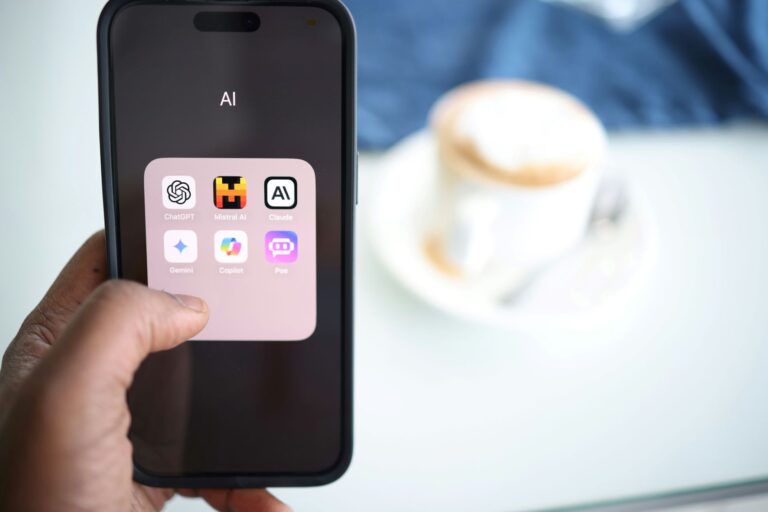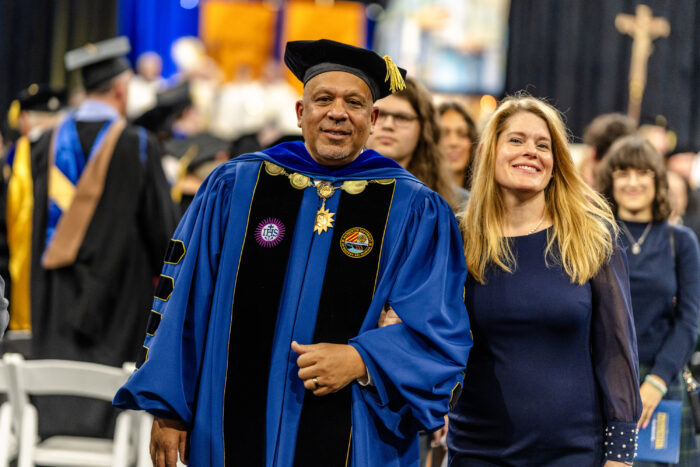A new semester is upon us, and it’s hard to ignore the evolving capabilities of artificial intelligence and how it affects life in and out of the classroom. While some professors have specific guidelines on how to use it for class assignments, others have hard boundaries steering clear of the technology. It’s a delicate balance between teaching students how to use AI but not relying on it.

Here in a Q&A, Dr. Michael Zimmer, associate professor of computer science in the Klingler College of Arts and Sciences and director of the Center for Data, Ethics and Society, answers questions about how AI is used today, the pros and cons of classroom use and the technology’s trajectory.
For many people, AI is scary and we still don’t know its full capability because it’s ever changing. What are the biggest ways that AI is changing the world we live in?
I guess there are two ways to answer this. From an optimistic perspective, we’re seeing AI significantly transforming the world by automating routine tasks and providing new efficiencies, powering new tools for advanced health care diagnosis and drug discovery, increasingly powering more personalized experiences in services like streaming, online shopping and social media, and of course power new tools for creative industries generating art, music and writing, and fostering new forms of creativity and collaboration.
But this rapid reshaping of the world is not without significant concerns. While AI automates tasks and improves efficiency, this comes at the cost of widespread job displacement. In health care, though AI aids in diagnostics and treatment, it also raises ethical questions about privacy and the potential for biased algorithms making life-altering decisions. While AI personalizes online experiences, it also might deepen echo chambers and contribute to the spread of misinformation, amplifying social and political divisions.
What are the main ways you see AI used in the classroom? Good and bad.
We’re starting to see more intentional applications of AI in classroom settings, often coming from the “edtech” industry finding novel ways to incorporate AI into pedagogy tools and platforms. For example, online textbook publishers are using AI to help tailor educational content to individual students’ needs, allowing for more personalized learning experiences and helping students progress at their own pace. We’re also seeing AI being used to assist with tutoring and even grading.
But concerns certainly remain. Beyond a student’s performance in a particular course, a broader concern is emerging regarding the over-dependence on AI tools and how this might reduce critical thinking and problem-solving skills, as students may become too reliant on automated systems for answers.
How are teachers preparing students to use AI in the real world? Or are they?
I suspect most teachers recognize the need to prepare students for a future where AI is a part of their job. This could take the form of helping students understand good prompt generation to help leverage AI to make their jobs easier. Or this could be a focus on digital literacy skills, ensuring that students are comfortable with AI technology, can critically assess how they work and understand the various social and ethical issues that come along with an AI-driven world.
Why should we be optimistic about the possibilities of artificial intelligence?
I think there is some room for optimism in the ways AI-driven systems might help automate more mundane tasks and perhaps provide a spark of inspiration for creative activities. But I caution against being overly optimistic that AI is some magic tool that will be a solution for all of society’s ills. It comes with significant costs, limitations, and impacts — many of which we can’t even fully identify. I argue for moving slowly.
If you could look in a crystal ball, what’s your prediction of where AI will be in the next 10 to 20 years?
I tend to be cautious. I think the approach a company like Apple is taking aligns with the future of AI. They frame these tools as intelligent agents that can help make your life a little bit easier and better — not some world-changing omniscient power that will dramatically alter the path of humanity. They are focused on how AI can make incremental improvements to our lives, and we need to be careful about how we proceed (in terms of privacy, environmental impact and so on). I think in 10 to 20 years we’ll look back at this current moment as being mostly hype and over-enthusiasm, and we’ll have found a “middle ground” to benefit from some of these tools without letting them overtake our sense of humanity and purpose.



